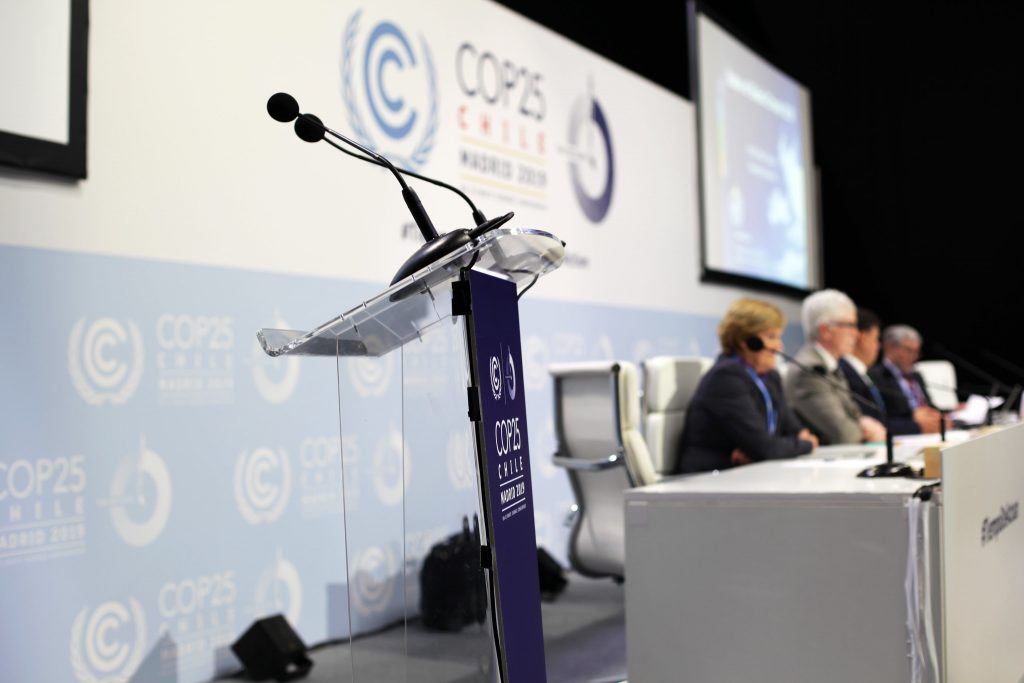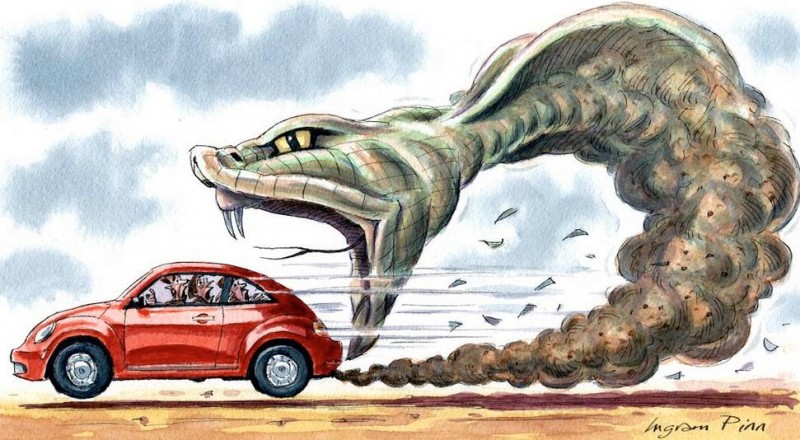COP25: Shake-up needed for a clean, equitable and just future

December 6th, 2019
After the chaos of the change of venue from Chile to Madrid, COP25 kicked off this week relatively smoothly.
Following on from last year’s conference in Katowice, Poland where the rulebook for the Paris Agreement was negotiated, delegates are now in Spain to drill down into the finer points of the actual operation of the Paris Agreement itself and its many accompanying mechanisms.
Those unfamiliar with COP and its many negotiating channels and processes would easily find themselves at a loss sitting in on meetings where there can even be discussions on the process of how to have the discussions themselves!
But, within the small temporary meeting rooms and large-scale plenary halls, Member States of the Paris Agreement are working to decide the fate of climate action for years to come.
As with every year, civil society, developing countries, indigenous communities, and the global climate youth movement are all calling for a titanic increase in climate action. A shift in ambition is essential considering the flurry of new scientific information over the last 18 months on the state of the climate, geosphere, hydrosphere, cryosphere, and biosphere.
One would assume the increasing scientific evidence would be a springboard for increased ambition and that wealthier countries would turn up to Madrid prepared to show clear commitment for rapid emission reductions and greater climate financing. Unfortunately, it seems that the same dynamics as previous years are in play, with developed countries continuing to lag behind.
Climate finance has always been a sticking point during negotiations at COP, with developing countries calling on developed countries to pay their fair share to assist them in dealing with the consequences of the climate crisis which they did the least to create. This year a particular focus has been placed on the concept of climate-induced loss and damage i.e. the impacts that cannot be ‘adapted to’.

Unavoidable climate consequences
These include both extreme events such as floods, storm surges and heatwaves, and slow onset events such as sea-level rise and desertification. It includes economic loss and damages to assets, as well as non-economic impacts such as loss of life, territory, and identity.
For developing countries, an additional finance mechanism must be established outside of adaptation or mitigation for the simple fact that climate change impacts already result in effects that are beyond the current or conceivable adaptive capacity of developing countries.
As Lidy Nacpil, the co-coordinator of the Global Campaign to Demand Climate Justice, said at COP25 this week: “Achieving 1.5C is not about survival for all of the people of the south but about chances to survive because many people are already not surviving the current impacts of climate change.”
Rich countries owe a moral and ecological debt to developing countries for the damage they have done to the environment. This debt includes financial responsibilities. Rich countries must provide the means of implementation to allow poorer countries to prepare for increasing climate impacts and to follow a clean, climate-friendly development pathway.
The discussions on loss and damage sit within the Warsaw International Mechanism (WIM). The WIM’s mandate includes ‘enhancing action and support, including finance’ for loss and damage. Whether that means the provision of new and additional finance has been the main sticking point during negotiations and the capacity of the WIM to have a financing arm has been met with strong pushback from Australia, the US, and the EU.
Setting the tone for action
This COP will also be seen as one that set the tone for greater action to tackle rising emissions, expected to be announced in 2020 at COP26 in Glasgow. Renewed nationally determined contributions (NDCs) are due to be announced at next year’s COP and there has been a push to ensure these are in line with the 1.5C Paris threshold.
Despite the European Parliament’s recent declaration of a state of climate emergency, and the ambitious promises of a new green deal for Europe, the European Commission is seriously considering whether it will revise the bloc’s NDC before COP26.
This delay, from one of the leading negotiators of the Paris Agreement, would undermine COP26 as well as the whole process of revising the level of ambition and closing the ambition gap. It is now vital that EU member states push back and ensure that the EU remains a leader in climate action. If not, then other less ambitious states will have an excuse to opt-out of improved NDCs in 2020.
In Madrid, countries are also negotiating the rules around carbon markets and the trading of carbon credits. Previous carbon trading schemes have proved unsuccessful so climate vulnerable countries are pushing to make sure there are tight regulations to close loopholes to make money selling useless carbon credits that don’t help to reduce global emissions.
It seems that as the years move on from Paris, the messages of global coordination and solidarity to fight the climate crisis are fading into the background around the negotiation tables. Negotiators appear to be focused on emphasising why they are not in a position to take strong and rapid action to cut their emissions, rather than seeing climate change as a global existential crisis that threatens the very fabric of the planet that we all rely on for our survival.
Unlike 2018, there was no opening people’s platform this year with messages of urgency, hope, and collaboration, such as those delivered by David Attenborough. Today (Friday) Greta Thunberg has arrived in Madrid, and the climate strikers will take to the streets, including two Friday for Future Ireland members, Thoe Mouze and Saoi O Connor.
Maybe this will be the shake-up required for the negotiations – to reignite some of the energy, passion, and collaboration that drove the world to create the Paris Agreement in the first place.
The burden should not lie with the young to solve a problem they did not create, but their frustration and messages of urgency will hopefully remind those in power that our future must be clean, equitable and just – A world sustainable for all, young and old, in developing and developed counties.
By Jenny Higgins
Jenny is an advocacy and policy officer at Christian Aid Ireland where her work is focused on increasing ambition on climate change, environmental justice, and human rights and accountability issues.







